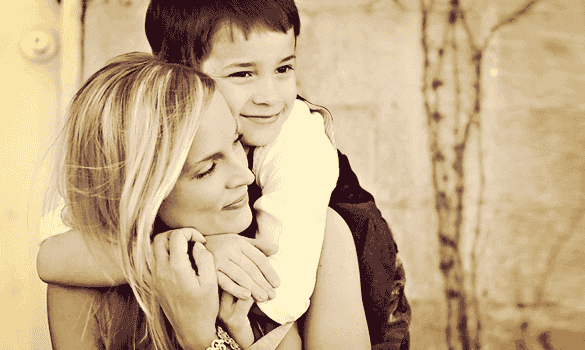
Written and verified by the psychologist GetPersonalGrowth.
Last update: 15 November 2021
My son also says "I love you", he looks for my hugs, he is affectionate and does not hesitate to give me demonstrations of affection and sweet tenderness. Because even boys, like girls, have that sensitive and intimate gaze that must be respected and strengthened through adequate emotional intelligence; we must not inhibit their feelings, needs, emotional treasures.
It is certainly worth investing our attention, our time and, above all, our intuition on the development, or rather the encouragement, of this more sensitive side of our children. However, and as strange as it may seem, although society and even families are dedicated to fomenting this "apparent" gender equality, there are numerous nuances that escape us.
"It is not the flesh or the blood that makes us fathers and children, but the heart" -Friedrich Von Schiller-
A survey was recently conducted among boys and girls from different schools. The results showed that most of the girls had internalized the need, in order to achieve social success, to integrate positive skills such as learning, risk, courage or action into their lives, dimensions that until recently ago they were tied exclusively to the male gender.
Strange as it may seem, while women are fully aware of being able to make their own many of the attributes held up until not long ago by the opposite sex, men often continue to be victims of defensive masculinity, following which they do not consider it adequate to integrate the aspects traditionally attributed to the female universe. Let's talk about sensitivity, delicacy, tenderness ...
We could therefore say that despite numerous social advances, sexism continues to be a natural limitation in the educational approach intended for many children. It is also necessary to remember that the patriarchal system not only discriminates and oppresses women, but also limits men and “dictates” them how they should be, act and react.
The symbolic plot of "you must be" and the masculine circles
Roberto broke up with his girlfriend. After eight years of relationship, she openly told him that she doesn't love him anymore. Our protagonist's world has fragmented and every piece of him has stuck in his heart and mind. He hurts him so much he can't breathe, he doesn't know what to do or how to react.
He feels the need to seek the support of his friends. However, he realizes that with most of them he has an "activity" friendship: with some he plays basketball, with others he does karate or role play. However, he has his long-time friend, Carlo. She knows that she could talk to him, there is confidence and she could listen to him, be a shoulder to let herself fall on ...
Despite this, there is an even more complicated, profound and unnerving problem for Roberto: he does not have the courage to seek such intimacy, he does not know how to do it, he lacks skills. Finally, and after a few months of obscurity and some suicidal thoughts, decide to seek professional help. After several months of therapy, the psychologist advises Roberto something he had never heard of, something that, curiously, will do him good and will be therapeutic: men's circles.
Characteristics of men's circles
Through socialization, a clear homogeneity is often achieved. Our parents sometimes inculcate in us - as they did with Roberto - a symbolic and functional plot on "how one should be, act and think" based on one's sex. This causes, sooner or later, the appearance of contradictions, suffering and multiple frustrations.
Men's clubs aim to create safe and confidential spaces in which men can converse about their thoughts, their needs and, above all, vent their "emotional storms". One aspect that they all agree on, and that will certainly help our protagonist, is knowing that you are free to drop your own bulletproof armor that has been imposed by society. They are free to cry, to be sensitive, to talk about what they want without being judged by the classic patriarchal scheme.
My son is also sweet and affectionate, my son will keep his sensitive side forever
"Do not cry", "do not be indecisive", "react", "do not appear weak", "do not talk like that, you look like a sissy, raise your voice" ... All these expressions are, in reality, sexist and discriminatory mandates that totally prohibit the emotional development of our children. If from an early age we start integrating the codes and roles that ultimately meet the cultural definition of masculinity, we will give the world an emotionally limited person with an insecure attachment.
Most likely these guys will be suitable and competitive in terms of the domain of space and instrumental skills, there is no doubt. However, they will have no emotional skills, will be unable to tolerate frustration, and will not have effective mechanisms to process and manage such common feelings as sadness or fear.
Let's think about it: Is it really worth raising children who will one day be unhappy and create equally frustrated environments? Obviously not.
Most of our little ones, boys or girls, are affectionate and sweet by nature. We are programmed to connect with our fellow men and to understand that emotional caresses, sensitivity and tenderness allow us to bond with each other much better.
Let us respect and enhance this side of our child's character, let him freely develop his emotional expression, be free to ask or give a hug, that he is not ashamed to cry when he needs it, that he understands the inner universes that dignify us as people without distinction of genders.


























